Evgeny Káganer is an Associate Professor at IESE Business School, where he teaches MBA and executive courses on digital business, IT strategy and virtual enterprise. His research focuses on the impact of digital technologies on individuals, organizations and business models. His recent work traces the evolution of crowdsourcing and its growing impact on business.
Question: You are a doctor.
Answer: I have a degree that says that I am a medical doctor, but that doesn’t mean I am a doctor. I did go to medical school and passed all the tests. I did get the diploma, but have never practiced medicine.
Q: How did you transition from medicine to financial services to becoming a professor at IESE?
A: I know it may seem a little bit unusual, but it seems unusual from vantage point of the world we live in now. All those decisions were made and all those things happened in a different context. I made the decision to go to medical school when I was still living in the USSR. During my first year of med school, the Soviet Union broke up and the world around me was changing quite rapidly. It was undoubtedly a painful experience for our parents and for the older generation, but for younger people it suddenly opened up a lot of opportunities that hadn’t existed before. I started working in financial services during my third year of med school. Initially I started working in health insurance. We use civilized terms like “financial services” and “health insurance,” but we have to remember that it wasn’t quite how things were back then. This area was something that hadn’t existed before and that no one knew anything about, so in a sense, we younger people really had no competition because people with a lot more experience didn’t have any experience either.
I went into health insurance and very quickly switched to financial services, which is what I did during the 90s. Again, if you went into financial services in, let’s say ’93, you’d be one of the first guys doing something in this area and you’d also be doing everything. I used to trade on the floor, I used to trade municipal and corporate bonds, and I also used to buy stock shares for cash. Although I say “financial services”, it doesn’t quite describe what we used to do.
The country was going through multiple forms of privatization. My job was to launch the regional operations of a very large financial services firm in Russia, which was very much like creating your own company but with the backing and support of a company in Moscow. I decided to finish my medical school studies, which takes six years in Russia. I earned the diploma but knew I wouldn’t be a practicing physician.
The “collaborative economy” is the current phase of this shift, which a few years ago used to go under the label of “crowdsourcing”
We had a big financial crisis in 1998 and that’s what got me thinking “what to do next.” By then, I had spent quite bit of time working in business but didn’t have any formal business training. I figured I should do an MBA. Again, I say this now and you can relate to it and understand what I’m talking about, but at the time there were very, very few people in Russia who did an MBA. That’s what I decided to do. In 2000, I left Russia and went to the States to do my MBA.
This is how I transitioned from medicine to financial services to… we still haven’t come to what I’m doing now, but during my studies in the States…it was a series of coincidences. Life is serendipitous, certain opportunities present themselves and you either act upon them or you don’t… so long story short, I started working with a professor at the university where I was doing my MBA (Syracuse) and was introduced to systems like SAP R3. They really impressed me in a way because during my last two years in Russia, we were buying previously state-owned companies and trying to integrate them into a holding company. One of the key challenges that we faced was having no any idea what was happening in those factories. They would send us faxes twice a week, and that was our window on what was happening on the ground. When I was shown SAP R3 with full data integration, I was really impressed.
Long story short, I ended up finishing my MBA and then going for a PhD, and that’s how I made the transition from business to academia and also how I made the transition from financial services into technology.
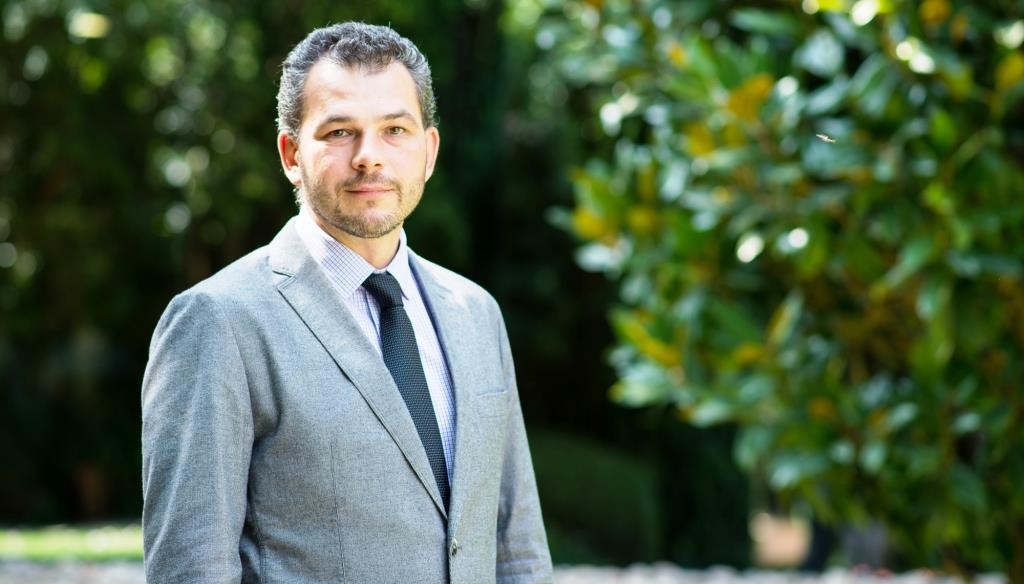
Q: How relevant will “crowdsourcing” be?
A: Relevant to whom? I think “crowdsourcing” was something we talked about quite a bit a few years back.
Q: Was it a fad?
A: It’s not a fad, it’s a phase. What we used to call “crowdsourcing” was a manifestation of a more profound shift. That shift has to do with how the nature of work and the nature of employment are changing. If you think of traditional crowdsourcing like Wikipedia and Threadless and then connect it to what everyone is talking about today, which is collaborative or shared-on-demand economy, and if you think of companies like Airbnb and Uber, the two phenomena are basically the same. The “collaborative economy” is the current phase of this shift, which a few years ago used to go under the label of “crowdsourcing.” It is unfolding quite rapidly and will have a profound impact on the world of organizations and the world of labor, in general.
Clearly we are shifting more and more towards “on-demand work” and therefore there will be very long-reaching consequences. How are our organizations structured? How does work get done within the organization? Are you a permanent member of that organization or not? Are you affiliated with one single firm or with many firms? In this context, when you position “crowdsourcing” as one step on this long journey, it is very relevant. To me, it is one piece of a much bigger puzzle.
Q: What will be the biggest challenge that we MBAs will face in the short term?
A: The topics that I discuss in class all relate to the big trends that businesses are dealing with today, including my focus on digitalization. It is a challenge and an opportunity that will certainly shape companies quite significantly. It’s shaping them already and will not only shape companies, it will also shape individual careers in a very significant way. This will happen in a number of ways. For one, I am almost certain that almost all of you will have to deal with projects or challenges or initiatives that will involve digitalization, regardless of your primary focus, regardless of your industry.
If you thought you would earn this MBA and that it would carry you throughout the rest of your career, you’re wrong
I also think that digitalization has a very profound effect on our careers since it forces companies to constantly upgrade, reinvent themselves and evolve their core competencies and it brings down barriers to entry. It is bringing down barriers to entry in the majority of industries and the majority of professions. In the same sense that companies will not be able to rely on the same sets of core competencies for long periods of time, we as professional won’t be able to rely on the same set of skills for our entire career. If you thought you would earn this MBA and that it would carry you throughout the rest of your career, you’re wrong.
Q: Oops!
A: We will have to constantly upgrade our skillsets and our mindsets, and a lot of it—not all of it, but a lot of it—is being driven by digitalization. Again, I think we need to get comfortable with the idea that change is becoming constant. We will need to evolve our companies on an ongoing basis and evolve as professionals on an ongoing basis as well.
Q: Who is more comfortable with this way of thinking: the younger generations or us? Are they used to this fast-paced world?
A: In general, I don’t think that we as individuals are becoming more comfortable with it. Change is not something that we as humans welcome. The majority of us don’t like change. It is a difficult transition for us. It is difficult to embrace this idea and we resist it in different ways. I wouldn’t say that this is happening on average, the same way that this isn’t happening within companies. On the other hand, you can find industries where companies have been forced to adopt this different approach and mindset. Similarly, there are certain professions where people are being pressured to a certain extent to do the same.
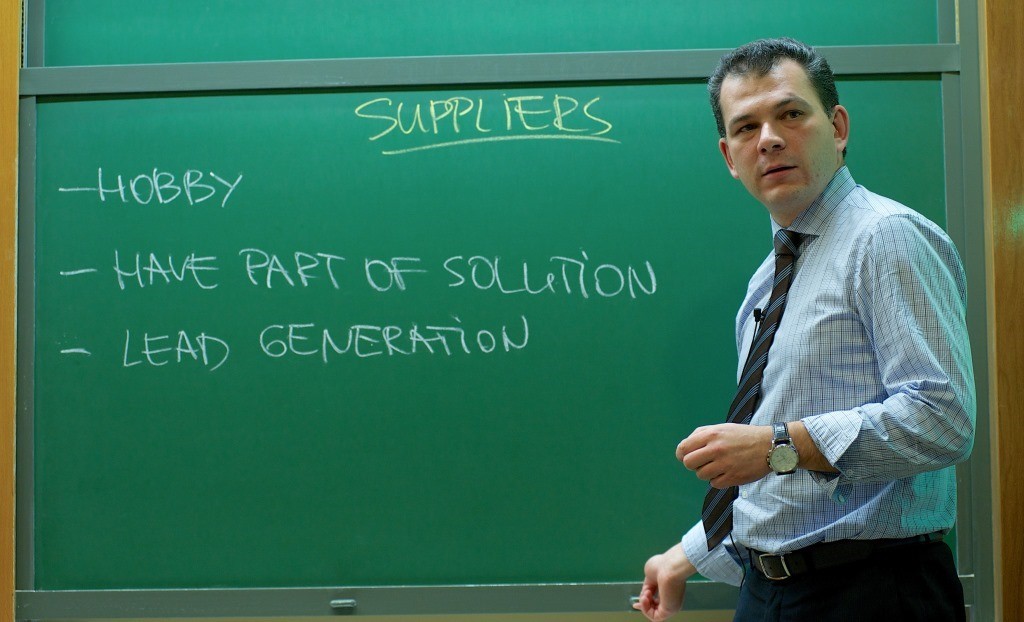
Q: And it will not come naturally.
A: To some it will come more naturally than to others. It all depends on the individual.
Q: On a lighter note…
A: …This has been pretty light so far though.
Q: Yeah, especially the part about the MBA not being worth it.
A: No, no, I didn’t say that the MBA wasn’t worth it. It depends on what you do with it, but in any case, you shouldn’t expect that with an MBA degree you are “set for life”.
We need to get comfortable with the idea that change is becoming constant
Q: Any hobbies?
A: As you have seen, I have changed a lot of things in my life, which probably has to do with my personality. I get bored of things fairly quickly. Some people have hobbies and focus 100% of their spare time on them. I can’t say that’s my case. I have done many different things.
I like sports very much and used to play football quite a lot. I stopped playing because the possibility of getting injured increases with age. I switched to tennis because it’s not a contact sport like football. I also like skiing very much and I read a lot.
Since all of my work is in English, I have the need to go back to my native language, so I read a lot of fiction in Russian.
Q: Favorite books or authors?
A: I can’t name a favorite author or point out a single book because there are too many books that I have enjoyed. I could probably point out writers that I enjoy, but some of them are Russian so most people wouldn’t know them. From the international scene, I enjoy Umberto Eco.
Q: He released a new book before passing away.
A: I haven’t read that one yet but I have read most of his books. I also enjoy a Japanese writer, Haruki Murakami.
Q: Yes, Murakami is brilliant.
A: You can see that the range from Eco to Murakami is huge and diverse.
Q: For me, Eco is very hard to read. Murakami is much easier to read and his books are more page-turners.
A: Yes, reading Eco requires concentration, for sure.
Q: What would you be doing if you weren’t a professor at IESE?
A: In terms of business schools, there are actually very few places where I would be comfortable. I often say that if I hadn’t ended up at IESE, I would have been out of academia by now. Most likely I would go back to business and work with large companies to help them rethink themselves in the context of digitalization.
The other thing is that I think there are a lot of interesting opportunities in the space between the “start-up world” and the “traditional corporate world.” These used to be very separate worlds, but I think moving forward, we’ll see more and more things happening at the intersection of these two worlds. Quite likely, I would be doing something there.
We’ll see more and more things happening at the intersection of the “start-up world” and the “traditional corporate world
Q: What exactly about IESE has kept you in academia?
A: We are clearly an academic institution and there are a lot of things I appreciate about academic institutions. One in particular is that I can decide what to work on. At IESE, I can change what I work on without having to change where I work.
What is different about IESE is that we are similar to the other academic institutions and have the same benefits, but at the same time, we are much, much closer to companies and the real business world. We spend a ton of time with executives, a lot more than the vast majority of other business schools. The combination of the academic world and the real business world, and all the different opportunities that arise at their intersection, is what makes it interesting for me.
Q: Where would you like to retire?
A: I could retire in Barcelona, it isn’t a bad place to be, but it is not something that I think about. Plus, I don’t think we’re going to retire anytime soon.
Q: Closing comments?
A: Do we need to close? The whole point of the interview is to serve as an opening and not a closing, so we don’t need to close.
I would like to thank Professor/Doctor Káganer for his time.
As for me, I can pinpoint a favorite book. I think you attach a certain value to a book based on how profoundly you changed after reading it. My favorite book is The Teachings of Don Juan by Carlos Castañeda. If you like his books, drop me a line and we can talk for hours about them.
Until the next issue…


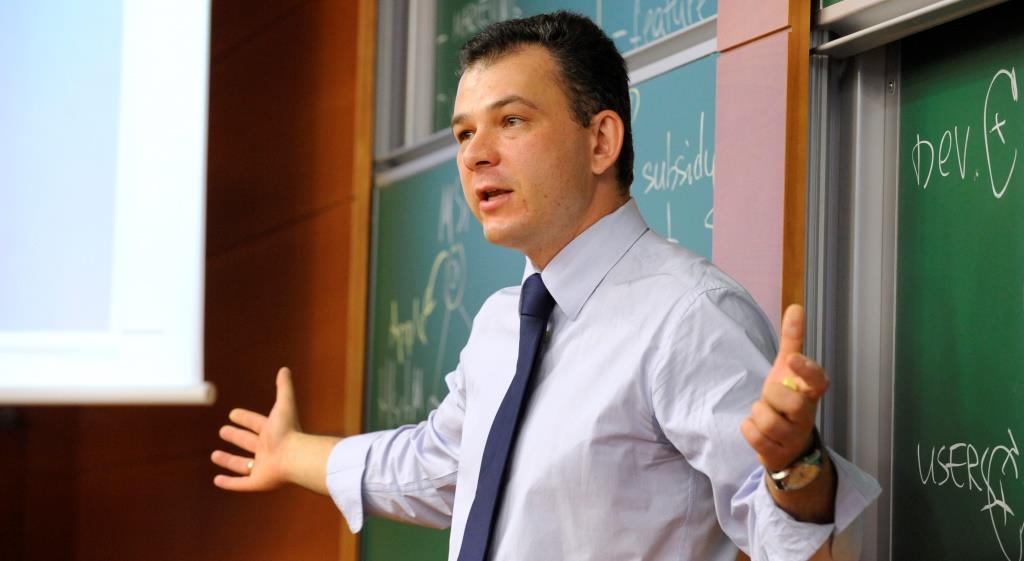
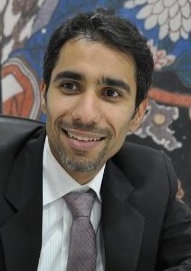
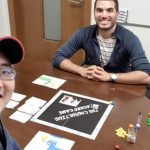
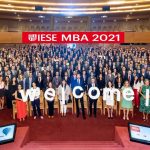


I agree that digitalization has a big effect on companies and any company that does not change with technology will definitely go out business. A good example is Nokia. When other cellphone makers changed with the trends, Nokia refused and look at where it is now.
This shows that organizations need to keep on upgrading and also ensure that its employees are up to date with the current technological advancements.
The same should also apply to learning institutions. They must teach IT skills that are relevant and applicable to the current industrial trends. Failure to do this will lead to graduates who are not ready for the job market and can’t offer solutions to companies.
You’re spot on my friend! My MBA has gotten me far, but not as far as I thought. Thanks for the insight.
This article has a lot of good content, including a few paragraphs I can refer to, photos come with quality too, thank you for sharing.
Your article is very good from the content to this whole image, I hope in the future you can share more for everyone to see. respect you very much.
Thank you for posting this good article, this article is very helpful to us to knowing about our required information.